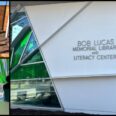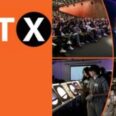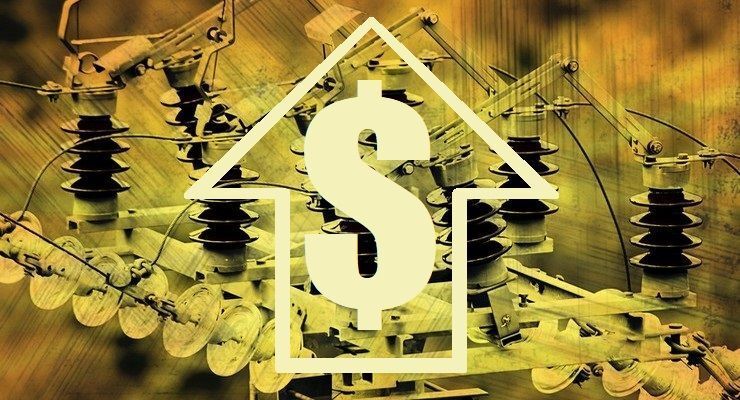
We have all faced a multitude of challenges since the start of the New Year, from the devastating windstorm and fires to shifts in government policies. Sometimes it can feel as though information is coming at us at a dizzying pace—just when you think one issue is settled, here comes another. We’ve learned that our best laid plans can often go awry or be met with uncertainty, and this requires the ability to pivot and quickly adapt to new circumstances. It brings to mind something my grandmother used to say: “If you want to make God laugh, tell Him your plans.”
Amidst all this uncertainty, it’s easy to feel anxious, impatient, or even fearful of what the future holds. If you’re feeling lost or overwhelmed and would like someone to talk to, there are numerous local nonprofits dedicated to supporting mental health, along with county mental health services.
During times like these, it’s important to remember the one thing we can control is how we present ourselves to the world. While easier said than done, we simply must not allow our current circumstances to define our identity or our future. It is crucial to take time for self-reflection so that you can remain true to your best self—and continue to be that best self for your family, friends, and neighbors.
We’ve all been through a lot, and even if you haven’t been directly affected, the impact on our community is felt by all and it is natural for us to feel empathy for those in our community who are coming to terms with a new reality.
Like my friend’s grandmother used to say: “There’s two ways we can respond to FEAR—Forget Everything And Run, or Face Everything And Rise”.
Take care of yourselves, and remember that it’s okay to seek help when you need it.
——
Ways To Get Help
Coping with a disaster can be difficult, and it is important to remember that you are not alone. Anxiety, stress, and depression-like symptoms are common reactions in both children and adults after a disaster, and getting help as soon as possible is the best way to protect your long-term mental health.
If you, your loved ones, friends, or neighbors are experiencing mental health distress related to the Eaton Fire, do not hesitate to ask for help. We are fortunate to have a variety of services available to assist, and if you or someone you know is experiencing emotional distress, please reach out now for help:
Mental Health Help Line: Call 800-854-7771 or text “LA” to 741741 to find immediate help or access local mental health services. This 24/7 multilingual LA County hotline also enables disaster victims to receive screening, assessment, referrals and crisis counseling over the telephone.
CalHOPE Warmline: 833-317-4673
Crisis Text Line: text LA to 741741
Disaster Distress Helpline: 800-985-5990
Suicide & Crisis Lifeline: dial 988 for 24/7 support
Eaton Health Village – in partnership with the Department of Mental Health, EHV is providing free medical and mental health care every Monday and Wednesday from 11 a.m. to 3 p.m. at the Pasadena Seventh-Day Adventist Church (1280 E. Washington Blvd, Pasadena, CA 91104).
Services include medical consultations, medical refills, mental health services and case management, vision care, and dental care. Call 855-665-4621, press 3.
Foothill Family Center – (626) 993-3000; foothillfamily.org. Therapists and counselors are providing trauma-informed care, grief counseling, and crisis intervention to those impacted by the Eaton Fire.
Peace Over Violence – 626-584-6191; peaceoverviolence.org; 892 N. Fair Oaks Ave., Suite D, Pasadena. If you have experienced sexual or domestic violence, intimate partner stalking, or child abuse, POV offers is innovative and comprehensive programs including Emergency Intervention, Prevention, Education, and Advocacy services.
Rose City Center – (626) 793-8609; rosecitycenter.org; 595 E. Colorado Blvd., Suite 719 Pasadena. As an expansion to its LEAF (Life Emergency Assistance Fund), Rose City has set aside funds to provide low-fee therapy to those struggling during the ongoing emergency in LA County. Rose City is offering a reduced rate for therapy services for up to eight sessions. Accepting in-person or virtual appointments.
D’Veal Family & Youth Services – (626) 296-8900; dveal.org; 2750 E. Washington Blvd., Suite 230, Pasadena. Offers behavioral healthcare services to promote family wellness and strengthen the community through innovative and comprehensive behavioral healthcare services.
Additional Resources:
Resources for Parents/Caregivers (Pasadena Public Health Department)
Tips for Survivors of a Disaster – Coping with Retraumatization
The Mental Health Impact of Wildfires (American Psychiatric Association)
Wildfire & Mental Health (California Department of Public Health)
Mental Health and Stress After an Emergency: This one-page resource can help you identify common reactions and what you can do for you and your family.
How to Talk to Your Children About the California Wildfires and Other Natural Disasters (Parents Magazine, 2025)
BE PREPARED (UCLA COE) – Tipsheet to support parents in speaking with their kids about difficult situations
Children & Recovery from Wildfires – guide that goes through potential reactions and helpful responses according to kids’ age groups
Helping children after a wildfire: Tips for caregivers and teachers (National Association of School Psychologists, 2023).
Coping After a Natural Disaster (Zero to Three) – Resource for parents of babies and toddlers
Coping with Trauma and Stress in the Face of Wildfires: Tips for Early Childhood Educators (Zero to Three) – Resource for Early Childhood Educators
Grief & Loss Resources
Helping Kids Cope: The National Child Traumatic Stress Network offers Parent Guidelines for Helping Children Impacted by Wildfires and other resources for helping children handle a wildfire disaster and offers tools like an activity guide for children and teens who face evacuation in a disaster. You can also download the Help Kids Cope Phone App for Apple or Help Kids Cope Phone App for Android.



















